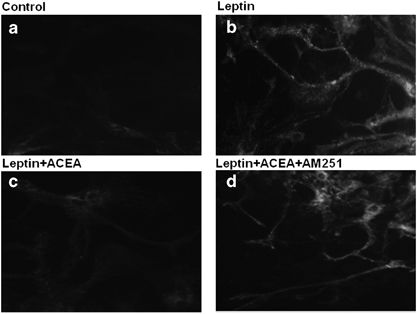International Journal of Obesity Supplements Pub Date : 2014-07-08 , DOI: 10.1038/ijosup.2014.8 L Cristino 1 , V Di Marzo 1 , L Palomba 2

|
Excessive consumption of high-energy, palatable food contributes to obesity, which results in the metabolic syndrome, heart disease, type-2 diabetes and death. Current knowledge on the function of the hypothalamus as the brain ‘feeding centre’ recognizes this region as the main regulator of body weight in the central nervous system. Because of their intrinsically fast and adaptive activities, feeding-controlling neural circuitries are endowed with synaptic plasticity modulated by neurotransmitters and hormones that act at different hierarchical levels of integration. In the hypothalamus, among the chemical mediators involved in this integration, endocannabinoids (eCBs) are ideal candidates for the fast (that is, non-genomic), stress-related fine-tuning of neuronal functions. In this article, we overview the role of the eCB system (ECS) in the control of energy intake, and particularly in the consumption of high-energy, palatable food, and discuss how such a role is affected in the brain by changes in the levels of feeding-regulated hormones, such as the adipose tissue-derived anorexigenic mediator leptin, as well as by high-fat diets. The understanding of the molecular mechanisms underlying the neuronal control of feeding behaviours by eCBs offers many potential opportunities for novel therapeutic approaches against obesity. Highlights of the latest advances in the development of strategies that minimize central ECS overactivity in ‘western diet’-driven obesity are discussed.
中文翻译:

大麻素 CB1 受体在可口食物摄入、肥胖和相关代谢异常中作用的新视野
过度食用高能量、可口的食物会导致肥胖,从而导致代谢综合征、心脏病、2 型糖尿病和死亡。目前关于下丘脑作为大脑“喂养中心”功能的知识认为该区域是中枢神经系统体重的主要调节器。由于它们本质上是快速和适应性活动,控制进食的神经回路被赋予了由神经递质和激素调节的突触可塑性,这些神经递质和激素在不同的整合层次上起作用。在下丘脑中,在参与这种整合的化学介质中,内源性大麻素 (eCB) 是快速(即非基因组)、与压力相关的神经元功能微调的理想候选者。在本文中,我们概述了 eCB 系统 (ECS) 在控制能量摄入中的作用,特别是在高能量、可口食物的消耗中,并讨论了这种作用如何在大脑中受到喂养水平变化的影响——调节激素,例如脂肪组织衍生的厌食介质瘦素,以及高脂肪饮食。对 eCBs 对摄食行为的神经元控制的分子机制的理解为新的肥胖治疗方法提供了许多潜在的机会。讨论了在“西方饮食”驱动的肥胖中最大限度地减少中枢 ECS 过度活动的策略发展的最新进展。并讨论这种作用在大脑中如何受到喂养调节激素水平的影响,例如脂肪组织衍生的厌食介质瘦素,以及高脂肪饮食。对 eCBs 对摄食行为的神经元控制的分子机制的理解为新的肥胖治疗方法提供了许多潜在的机会。讨论了在“西方饮食”驱动的肥胖中最大限度地减少中枢 ECS 过度活动的策略发展的最新进展。并讨论这种作用在大脑中如何受到喂养调节激素水平的影响,例如脂肪组织衍生的厌食介质瘦素,以及高脂肪饮食。对 eCBs 对摄食行为的神经元控制的分子机制的理解为新的肥胖治疗方法提供了许多潜在的机会。讨论了在“西方饮食”驱动的肥胖中最大限度地减少中枢 ECS 过度活动的策略发展的最新进展。对 eCBs 对摄食行为的神经元控制的分子机制的理解为新的肥胖治疗方法提供了许多潜在的机会。讨论了在“西方饮食”驱动的肥胖中最大限度地减少中枢 ECS 过度活动的策略发展的最新进展。对 eCBs 对摄食行为的神经元控制的分子机制的理解为新的肥胖治疗方法提供了许多潜在的机会。讨论了在“西方饮食”驱动的肥胖中最大限度地减少中枢 ECS 过度活动的策略发展的最新进展。



























 京公网安备 11010802027423号
京公网安备 11010802027423号